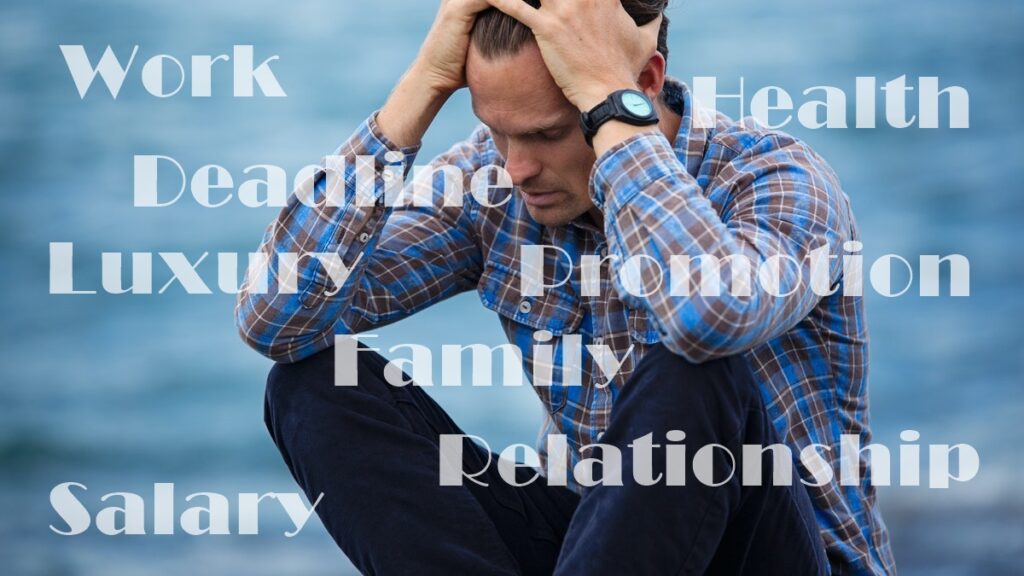Too much of an emotional or physical burden causes stress. Whether you have been expecting or it hit you by surprise, finding the right way to cope with it is necessary. Here, I will share some of the ways that I find useful in dealing with stress and trauma. But with a bit of background about the relationship between stress and trauma first.
How Stress Leads To Trauma?
Among the many symptoms of trauma, the one that stands out is denial. After being through a stressful circumstance, you naturally indulge in denial as there has been an invasion of your security and emotions.
The fear of being vulnerable, alone branches out to many other symptoms as social-disintegration, self-pity, etc. And this is exactly why dealing with the situation at hand is very important. But what you need to keep in mind is that no two traumas are the same, and there is no “right or wrong way” to address a problem.
Whether it is a car accident, loss of a loved one, sexual or verbal abuse, there cannot be predetermined response ways. Un-dealt stress and trauma may last from a few days to a few months. But if it is not dealt with rightly, it takes the shape of serious mental conditions as PTSD.
So go through the tips one by one, pick what you think may benefit you, and you are welcome to make a few tweaks to it!
Allow Yourself A Transition
Severe trauma can never be completely erased from memory. Events like a car accident or abuse stick with you and can even surface if you have dealt with the past problem. But it usually is not in the same magnitude as before.
The most important thing to do when dealing with stress and trauma is to allow yourself to transition. Something abnormal has happened to you, and there is no you could’ve seen it coming. Regardless of how hard it may look, you need to take in all the information and let yourself naturally overcome.
Grieving is an important part of dealing with traumas. Stressful and traumatic events make you question your safety and leave you at a very emotionally vulnerable spot. Preventing those emotions from building up, so they don’t explode later is the first step to recovery.
Don’t Isolate Yourself
The very first victim of a traumatic and stressful event is our social life. Somehow, disconnecting from everyone and everything gives you that feeling of security. But it prolongs the process of recovery and will eventually build up social anxiety.
The reason why isolating seems to be the only option is that you think not-talking about the trauma will help it fade away, which is not the case. You need to communicate to the right people, ask for help if needed, and get over the trauma.
However, you don’t need to talk about the event with everyone. You can continue to socialize as you would before, attend social gatherings, and go out have fun. The reason why socializing is important is because it helps you rediscover the feelings of joy. And they are extremely helpful in fighting stress and trauma.
Ask For Help
The most important aspect of all is to know when to ask for help. Someone going through stress and trauma can barely make the decision for themselves, which is why close friends and family should offer help.
There are a plethora of supplements that help in dealing with stress and traumas. CBD dabs are the potent version of cannabis oils, something that has been used for centuries to relieve pain, anxiety, and stress. You can even get a CBD oil vape to help tune down the effects of the soaring thoughts of trauma.
But as it goes, nothing beats the assistance of a professional therapist. More often than not, the unwillingness to talk about the trauma overcomes the desire to deal with it. And that is where help from a professional comes into play.
You can find therapists that master specifically the type of stress and trauma you are going through and be amazed by the results.
Physical Exertion
Stress and trauma are not just “phases” that one goes through, they cause hindrances in the way you operate, physical, mental, and emotional. A traumatic event disrupts your testosterone activity and the flow of endorphins from your brain.
And the best way to counter that is by exercising often. You do know about the physical health benefits exercise offers. It helps you stay fit, boosts self-confidence, and even live a little longer. But what it also does is rebuild the neural pathways in your brain.
And this is specifically helpful after going through a trauma. When your nervous response system is a wreck, you really can’t get back to functioning normally. A rhythmic exercise like swimming, running, rowing, etc. allows you to take your mind off the trauma until it becomes a natural response.
You can start as slow as bursts of ten minutes of activity during a day. And wait it out until it becomes a habit, and you start seeing the benefits for yourself.

